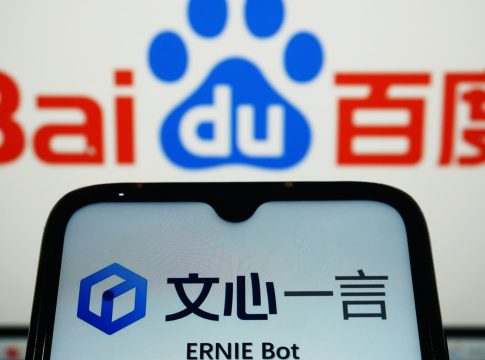Baidu’s Bold Move: Open Sourcing ERNIE Bot
Revolutionizing the AI Landscape
In a significant shift for the global artificial intelligence landscape, Chinese tech powerhouse Baidu is set to make its ERNIE chatbot—built on advanced generative AI—open source. This strategic decision, confirmed on March 16, 2023, marks a pivotal moment for Baidu, which has traditionally championed a proprietary model over open solutions. Experts within the field are keenly observing whether this move could rival the buzz generated by DeepSeek, a benchmark competitor in the AI space.
A Departure from Tradition
Historically, Baidu’s stance has aligned with maintaining control over its technology, often opposing open-source initiatives. Industry analysts, however, indicate that the success of disruptors like DeepSeek heralds a changing tide. Lian Jye Su from Omdia states, “The emergence of competitive open-source models is reshaping expectations within the industry.” As Baidu opens its doors to global developers, the implications extend far beyond China.
Raising the Competitive Bar
Sean Ren, an associate professor at the University of Southern California, emphasizes that the move will exert pressure on entrenched players like OpenAI and Anthropic to rethink their pricing strategies. Developers and researchers are increasingly looking for cost-effective models with robust performance metrics, which open-source paradigms can offer. Ren asserts, “Open-source options empower users with freedom to innovate and tailor their applications swiftly, challenging the status quo of gatekeeping by proprietary systems.”
A ‘Game-Changer’ for Pricing
Alec Strasmore, founder of AI advisory firm Epic Loot, likens Baidu’s open-source transition to placing a “Molotov cocktail” in the competitive AI arena. The sentiment is clear: for startups worldwide, relying on high-priced proprietary models may soon seem less justifiable. Baidu’s ERNIE X1 model claims performance parity with DeepSeek’s flagship model at half the cost, further emphasizing this paradigm shift.
Global Implications and Skepticism
While Baidu’s announcement has sparked excitement about increased accessibility to advanced AI tools, some experts express caution. Cliff Jurkiewicz from Phenom highlights that U.S. businesses may approach Baidu’s offerings with skepticism, particularly regarding security concerns associated with Chinese technology. Historically, apprehensions have arisen regarding data governance and ethical considerations, as seen in previous backlash against AI deployments.
Open Source: The New Frontier?
The open-source movement in AI is not without its challenges. Sam Altman, CEO of OpenAI, has acknowledged the need to adapt and potentially open source more models. However, achieving a balance between transparency and trust remains complex. Ren argues that greater visibility into data usage and training processes is essential to mitigate issues of consent and accountability.
As Baidu embraces the open-source model, stakeholders must grapple with the broader implications surrounding competition, innovation, and ethical AI deployment.
Final Thoughts
Baidu’s bold initiative could potentially reshape access to AI technologies globally, fostering innovation at a fraction of current costs. Still, navigating the implications of such a significant shift will require diligent oversight from developers, policymakers, and users alike. The AI race has entered a new chapter, and how the industry responds may define technological landscapes for years to come.

Writes about personal finance, side hustles, gadgets, and tech innovation.
Bio: Priya specializes in making complex financial and tech topics easy to digest, with experience in fintech and consumer reviews.

